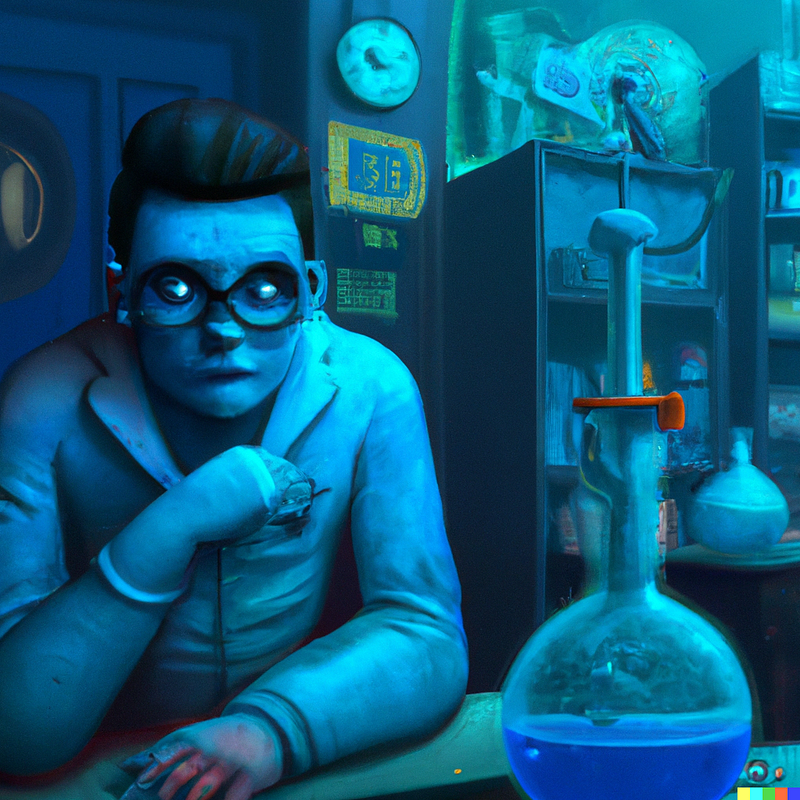The Big Problems — Post-Gender Transition Edition
I have Big Problems, and you should, too.


In November, 2022, I wrote a list of Big Problems. But I don’t mean the Big Problems involved in completing my gender transition.
I found the concept of “Big Problems” in Tiago Forte’s book “Building a Second Brain.” Forte recommends making a list of those thoughts that keep you up at night: the problems you wish you could solve, although you know you never can.
The value of such a list is to decide whether information you find in everyday life is worth persisting in your system of notes. If the information might help solve a Big Problem someday, save it!
As a newly-born writer, I wanted that list to provide inspiration when I didn’t have an article topic immediately in mind.
In the beginning, it worked! That list of Big Problems guided what I chose to write — it was a good compass for months. When I cast about for something to write, I found topics in the notes I took during normal internet browsing.
More recently, however, my writing has gotten a bit scattered. When I considered the reason why, it struck me I haven’t revised the Big Problems since last November. It became obvious when I realized I haven’t used them at all in a while.
Neglecting my Big Problem notes is both good and bad. I’m glad I have something to write about consistently. But it also means I don’t have a clear direction, and I usually need a direction to feel comfortable.
What follows are my thoughts on what was important to me soon after beginning transition, and how that has changed after completing social transition.
The old big problems
I made my list of Big Problems on 11 November 2022. I had been writing on Medium for just over a month. I had been on transgender hormone therapy for just over four months.
Earlier that week, I filed a petition to change my name legally, but had not received confirmation the petition had been granted. It may come as small surprise I changed a bit since then — physically, cognitively, and socially.
The focus of my first list of Big Problems was finding scientific evidence for the origin of identity. The primary topics I chose to investigate were genetics and brain structure. Because I began my undergraduate studies in genetics, I believed finding a clear path from genetics to biochemistry to cognition to identity would be a simple task.
Today, however, I find myself less concerned with science in general. While I still believe there is value in investigating the link between genetics and identity, my original goal was to use those studies to prove transgender is both real and valid. Today, I understand it requires two assumptions to pursue validating transgender with science.
Bad assumptions in science
The first bad assumption necessary to use science to validate transgender (or anything in the LGBTQ acronym, for that matter) is that the cisgender / heterosexual experience is “normal,” and the transgender / homosexual experience is “abnormal.”
To be clear, as of 27 April 2023, we have not established a genetic basis for gender or sexuality, period — not cisgender, transgender, heterosexual, or homosexual.
This is not to say identity is not at all based in genetics or its result, biochemistry. It is to say attempting to use science to validate the transgender / homosexual experience implies they are aberrant human characteristics, not part of the normal human experience, implied to be cisgender / heterosexual.
The “proof” offered to validate the cisgender / heterosexual experience is to say “well, look around you — there’s tons of us.” But the same answer must hold true for transgender / homosexual — because there are tons of us, too. If self-identification is the only criterion necessary to prove a genetic basis for identity, we’re already finished.
The second bad assumption necessary is that biochemistry is solely responsible for identity. If we discount the existence of an “I” outside biochemistry, we must assume there is biochemistry behind every characteristic. That is, personal characteristics such as favorite colors, the music one likes, whether one is religious, a political party affiliation…all of these must have a genetic basis, like gender and sexuality.
Imagine needing a genetic test to register Republican.
Fortunately, it is easy to reject this assumption as well. If it is valid to use “because I feel it” to indicate truth about political leanings, that same answer must also be valid for gender and sexuality.
Why science doesn’t matter
Again, I do not recommend we discontinue investigating links between genetics and identity. But I don’t see science as a productive avenue for making a point. The science is fuzzy and will be fuzzy for an indeterminate length of time.
Truly, I read scientific content (such as fMRI brain studies or Rex Kerr’s comments about the role genetics takes in identity) and I want to believe. I want to believe because — if they are true — no conservative politician can gainsay who I am, call me a “transtrender,” say I go against god’s will, whatever.
My desire to believe in some form of justification for my existence comes only from an implicit acceptance of my abnormality, that I differ from normal people in some fundamental way.
I will not feed that idea.
There is nothing to write about the use of science in validating my experience other than its basic injustice. After that, I am interested in the science, but it certainly will not be the focus of my work. It will not serve as justification or the mode by which I make my arguments. That is a losing battle among many groups of inconclusive data.
So what would I write about instead? Where does identity come from, if not brain structure or genetics?
If any of us is capable of using “because I feel it” as justification, identity must be outside everything — not exactly conscious choice, but not exactly a compulsion, either. We are who we are because it makes sense to us. We do what we do because we think it is right. People who run against either their common sense or their morality suffer from the mismatch I call The Reflection.
The point is: we can debate where human behavior originates…or we can accept human behavior is what it is and move forward. Whether my transgender originates in some nebulous brain structure, whether I inherited it from my mother and father, whether it was imposed upon me by society’s whims: my transgender exists.
I am transgender because it makes sense to me. I am transgender because it feels right to me.
We don’t need science now to determine our path forward — inconclusive science doesn’t matter when we have social problems to solve now. For that, we need policy.
The new big problems
If science is not capable of providing answers now, the question “why do you feel the way you do when it offends me?” is meaningless. Instead, we must ask “how do we determine what humans feel so that we know enough about the human experience to make laws in a society that serve all its members?”
In other words, we must cultivate awareness, introspection, a method to determine who we are, not why we are (although I hear there is a great podcast to that effect).
This is not to say a person could say “well, I like kicking puppies” and society bends to it. That does not define a just society. Justice serves all members of society objectively. People who kick puppies negate the rights of puppy owners.
But understanding “I am a woman with a penis (for now, anyway) who needs to pee in public at times” should not be a hot button issue in a society that treasures individualism, prizes innovation, and claims its moral superiority by being based on the concept of individual rights.
A society capable of building nuclear fusion reactors certainly ought to be capable of figuring out where I can pee.
This is why I will continue my path of making transgender normal: because exploring our identity is normal. Being who we are is normal. And allowing others to be who they are?
Yep — that’s normal, too.




